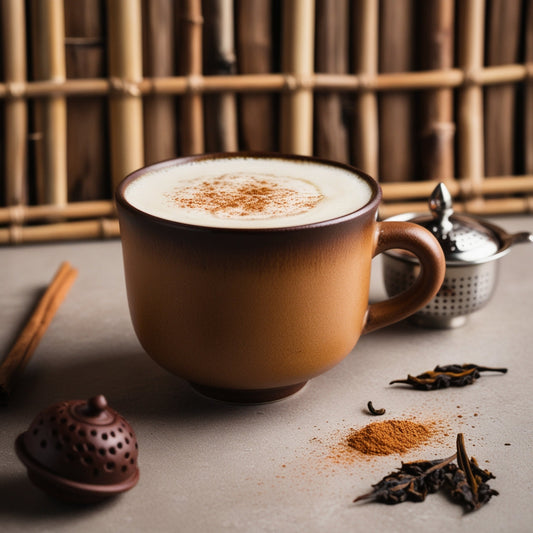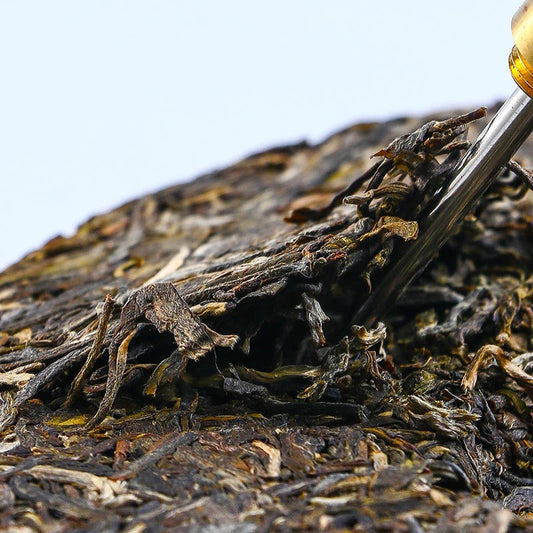Overview
Do you know how many flavours does black tea have?
Black Tea has many different flavours. It also includes many different ingredients that help to make it a better tea. However, some people think that black tea might be acidic. Moreover, this article guides you through black tea, ingredients, flavours, nutritional benefits, and how to brew a perfect cup.
Table of Content
- Introduction
- Black Tea
- Ingredients of Black Tea
- Flavours of Black Tea
- Nutritional Benefits of Black Tea
- How to Brew a Black Tea
- Conclusion
Introduction
As we know black tea has many benefits that makes it everyones favourite. The flavours help in this too. Additionally, there are some ingredients in the tea that helps in many health aspects. However, some people still drink this tea without knowing any benefits. Finding out the different flavours and the ingredients that are present in the tea is going to make your tea journey exciting.
Black Tea
Black tea is known for it’s flavours and benefits it gives. This tea is made from the same plant which is used to make some other teas. The plant is known as Camellia sinensis. This tea is popular worldwide and it is not hard to get. While it gives benefits it also has risks regarding the consumption levels. The leaves are fully oxdized for this tea. The main thing which is making this tea stand out from other teas are it’s oxidation process and benefits. There are some evidences that shows the benefits of this tea.

Ingredients of Black Tea
1. Catechins:
Catechins are polyphenols and tannins found in tea, giving it a slightly astringent taste. In black tea, catechins transform into theaflavins and thearbigins during oxidation, contributing to the tea's flavour and colour.
2. Theaflavins and Thearbigins:
These compounds provide the red hue of black tea. While catechins are colourless, theaflavins give an orange tint, and thearbigins impart a red colour. The more of these ingredients present, the deeper and brighter the tea's colour becomes.
3. Caffeine:
Caffeine adds a bitter taste to black tea. Unlike catechins, caffeine remains unchanged during processing. It makes up about 3% of the tea leaves weight, which is 2-3 times higher than in coffee beans. While a cup of black tea contains less caffeine than coffee, the brewing method extracts caffeine differently. Hot water (above 80°C) is best for releasing caffeine, which is why boiling water (95-100°C) is recommended for brewing black tea.
4. Saponin:
Saponin contributes to the bitterness of the tea but is present in small amounts. This ingredient acts as a surfactant, causing slight foaming in the tea. While it may not offer significant health benefits, it adds to the overall flavour profile.
5. Amino Acids:
Tea lovers often describe an umami flavor in their brews. This flavour comes from amino acids, particularly theanine, which makes up about 50% of the total amino acid content in tea. Although black tea contains amino acids, the final amount is typically less than in green tea due to different cultivation methods. When brewed at high temperatures, the bitterness and astringency can mask the subtle umami flavour.
6. Aroma Components:
Black tea leaves contain various aroma components that intensify during processing. The crumpling and oxidation processes break down cell walls, leading to the formation of floral and fruity aromas. Black tea and oolong tea have over 600 aroma components, while green tea has only about 200. Key aromatic compounds include linalool (lemon-like scent), geraniol (floral scent), methyl salicylate, and green leaf alcohol, all contributing to the tea's unique fragrance.
7. Chlorophyll:
Chlorophyll, the green pigment in fresh tea leaves, is oxidized during processing, transforming into other components. This process changes the overall colour and nutrient content of the tea.
Flavours of Black Tea
The flavour of black tea can vary greatly depending on factors such as the region where it is grown, the processing method, and the specific variety of the tea plant. Here are some popular flavours you might encounter:
1. Malty:
This flavour is often found in Assam tea, offers a rich and sweet taste. The maltiness can add depth, making it perfect for breakfast blends.
2. Fruity:
Some black teas, like Darjeeling, can have fruity or floral notes, providing a lighter, aromatic experience. These teas often carry hints of muscatel, which adds to their unique character.
3. Smoky:
Lapsang Souchong is famous for its smoky flavour, achieved through a unique drying process over pine wood fires. This distinctive taste can be polarizing, with some people loving its boldness while others prefer milder flavours.
4. Spicy:
Chai blends typically include spices like cardamom, cinnamon, and ginger, adding warmth and complexity to the tea. These spices not only enhance flavour but also offer additional health benefits, such as improved digestion.
5. Bold and Strong:
English Breakfast and Irish Breakfast teas are known for their robust flavours, making them perfect for a hearty breakfast. These blends often contain a mix of Assam, Kenyan, and Ceylon teas, resulting in a strong, full-bodied cup.
Understanding these flavours can enhance your tea-drinking experience. As you explore different types, you may find new favourites that can suit your taste.
Nutritional Benefits of Black Tea
Black tea offers a variety of health benefits, making it a favourite choice among tea lovers. Here are some key advantages of incorporating it into your daily routine:
1. Antioxidant Content:
Rich in antioxidants, especially polyphenols, black tea helps to reduce oxidative stress in the body. This can lower the risk of chronic diseases, including heart disease and cancer, while promoting overall health.
2. Supports Heart Health:
Regular consumption may benefit heart health. Flavonoids found in black tea can help lower cholesterol levels and helps blood vessel function, which may reduce the risk of heart disease. Drinking black tea regularly could lead to a lower incidence of heart attacks.
3. Improves Digestion:
The polyphenols in black tea may support gut health by promoting beneficial bacteria growth, leading to better digestion. This can help alleviate common digestive issues and improve gut function.
4. Boosts Mental Alertness:
The caffeine content can enhance focus and alertness, making it a great choice for a mid day. Moderate caffeine intake can improve cognitive performance.
5. Weight Management:
The polyphenols in this tea may help improve metabolism and fat oxidation. This can be beneficial for those looking to maintain a healthy weight or support weight loss efforts.
6. Hydration:
Despite its caffeine content, this tea contributes to your daily hydration needs and can be a refreshing beverage choice. Staying hydrated is essential for overall health and well-being.
7. Bone Health:
The antioxidants in the tea may support bone density and overall bone health, potentially reducing the risk of osteoporosis. Some studies have linked regular tea consumption to improved bone mineral density.
8. Blood Sugar Control:
Black tea may help regulate blood sugar levels and improve insulin sensitivity, which can be especially beneficial for those managing diabetes. Certain compounds in black tea may play a role in better blood sugar management.
With these health benefits, adding black tea to your daily routine can enhance both your physical and mental well-being. While these nutritions give many benefits you also should know there are some side effects that this tea can cause if consumed in excess, Additionally, you have to know how to buy the best one. Try using a guide that helps in buying and consuming this tea.
How to Brew Black Tea
To enjoy the full flavour and benefits of black tea, brewing it correctly is crucial. Here’s a simple guide:
- Boil Water: Start by boiling fresh, filtered water. The ideal temperature for brewing is around 95°C (203°F). Water quality can greatly affect the taste of the tea.
- Use Loose Leaf Tea: For the best taste, opt for loose leaf tea instead of tea bags. Measure about 1 teaspoon of tea leaves per cup of water. Loose leaf tea often provides a richer flavour due to better leaf expansion.
- Steep for 3-5 Minutes: Pour the boiling water over the tea leaves and let it steep for 3 to 5 minutes. The steeping time can vary depending on your taste preference—longer steeping results in a stronger flavour. Adjust the time based on your desired taste strength.
- Strain and Serve: After steeping, strain the tea leaves and pour your tea into a cup. You can enjoy it plain or add milk, honey, or lemon to enhance the flavour. Each addition can create a new flavour profile, allowing for a personalized experience.
Conclusion
The way the ingredients in the tea works is amazing. It can help in a lot of health problems. The different flavours gives various experiences for the enthusiasts. However, we have to consider the fact that if we consume it in excess we could face some problems. Additionally, identifying everything about the tea is great for anyone who is new or who is already drinking it. It will help you to make it more enjoyable than ever. If you are new to teas or if you are exploring other teas try Pu-erh Tea. This is a tea which gets greater by age, you can get high quality Pu-erh Tea from Pu-erh Craft.
Q&A Section
Q1: Is black tea safe to consume daily?
A1: Yes, black tea is generally safe to consume daily. However, it's best to keep your intake to about 3-4 cups to avoid potential side effects, such as increased heart rate or digestive issues.
Q2: What type of black tea has a citrusy flavour?
A2: Earl Grey tea is the most well-known black tea with a citrusy flavour, as it is infused with bergamot oil, giving it a bright, refreshing taste. Other black teas, like some varieties of Darjeeling, may also have subtle citrus notes.
Q3: How can I enhance the flavour of black tea?
A3: You can enhance the flavour of black tea by adding ingredients like milk, honey, or lemon. Each addition creates a unique flavour profile, allowing you to customize your tea experience to suit your taste preferences.







